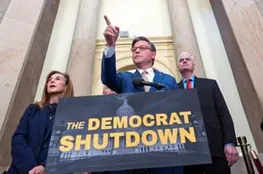Chicago’s spiraling pension crisis serves as a stark warning to Nevada, highlighting the devastating consequences of underfunded public employee retirement systems. The city’s financial woes aren’t solely defined by crime rates; rather, they are fundamentally rooted in a deeply troubled pension system that is systematically dismantling its finances. Last month, Illinois Governor JB Pritzker signed a bill significantly increasing pensions for Chicago police officers, a move that immediately elevates pension liabilities by an estimated $11 billion. The immediate impact will be $60 million in 2027, escalating to a staggering $753 million by 2055. However, this represents just the initial cost associated with this single legislative action. The city’s overall annual pension obligation extends far beyond this immediate projection, demanding sustained and substantial financial commitments.
Nevada’s public employee pensions are overseen by the state-run Public Employees Retirement System (PERS), a crucial distinction from Chicago’s approach. Chicago manages its own pension funds for city workers, a structure that has demonstrably proven unsustainable. As of the end of last year, Chicago’s public safety pensions were only approximately 25 percent funded, a figure that plummeted to a concerning 18 percent following the recent pension increase. This translates to the city having less than 20 cents for every dollar required to meet its pension obligations, a deeply precarious situation. Moreover, Chicago’s other pension funds are similarly dramatically underfunded, reflecting a broader pattern of fiscal mismanagement. Reports from the Chicago Tribune in 2024 revealed that the city’s total pension debt reached a daunting $37 billion, a figure that continues to grow. This mounting debt has necessitated significant increases in annual pension contributions, a trend that sharply contrasts with the doubling of property tax collections. The consequences of this fiscal imbalance are severe and far-reaching, impacting the city’s ability to invest in vital public services.
Several factors contribute to the debilitating nature of pension debt. Firstly, pension plans rely heavily on robust investment returns to cover future costs. Unlike private businesses, public pension plans are intrinsically linked to the success of the broader economy. Simply put, backfilling a dollar not invested in 2005 doesn’t just cost $1 in 2025; the government must also account for decades of lost investment returns, compounded over time. This creates a relentlessly escalating financial burden, effectively fighting against the principles of compound interest. It’s a situation where lost investment returns perpetually inflate the required contribution amounts, creating a self-perpetuating cycle of debt. Secondly, the substantial pension payments generated by this debt provide no tangible value for current taxpayers. These payments do not contribute to essential services such as road repairs, park improvements, or enhanced public safety initiatives. It’s analogous to paying off a high-interest loan taken out by the previous owner of a home – the current occupants are left with a significant financial obligation without receiving any direct benefit. The financial burden remains regardless of the property’s current value or the owner’s actions.
Nevada’s Public Employees Retirement System (PERS) is currently in a stronger position than Chicago’s pension funds, although it is not without its own challenges. In 2022, the combined PERS contribution rate for local police and fire employees stood at a substantial 44 percent. However, this rate has since increased to 58.75 percent, reflecting the ongoing need to address the system’s accumulated debt. Much like Chicago, these increased contributions are primarily directed towards reducing the overall pension liabilities. The potential for contribution rates to rise even further is a significant concern, particularly in the event of an economic downturn. When the economy weakens, investment returns decline, and contribution rates inevitably increase to compensate for these losses, creating a vulnerable situation for the state and its residents. Careful management and proactive planning are crucial to mitigating these risks and ensuring the long-term stability of Nevada’s pension system, a lesson that Chicago’s experience powerfully illustrates.
























